Nestled in the Valley of Peshawar in the Khyber Pakhtunkhwa Province in Pakistan is the historical city of Mardan. An ancient city rich in cultural and archaeological sites, Mardan is a curious traveler’s dream. From its fantastic bazaar to its memorable street food to its mysterious old monastery, the things to do in Mardan, Pakistan were a highlight of my time in Khyber Pakhtunkhwa.
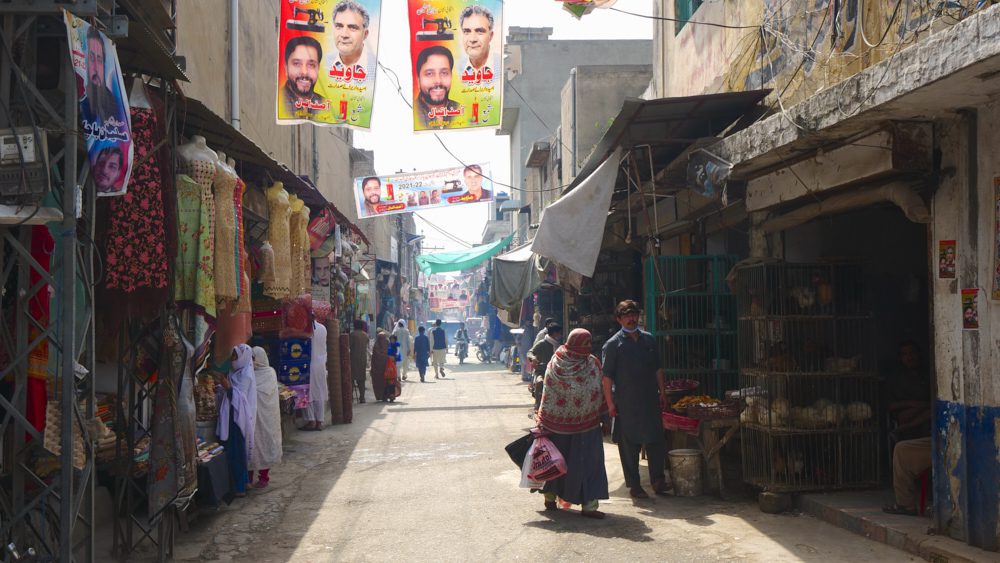
Mardan is primarily known for its long history, which is evident in the sites scattered in and around the city. The area was home to the Gandhara Grave Culture around 1800 BCE, and the Kharosthi script from roughly the mid-200s BCE written on rocks in Shahbaz Garhi, is South Asia’s earliest evidence of written language.
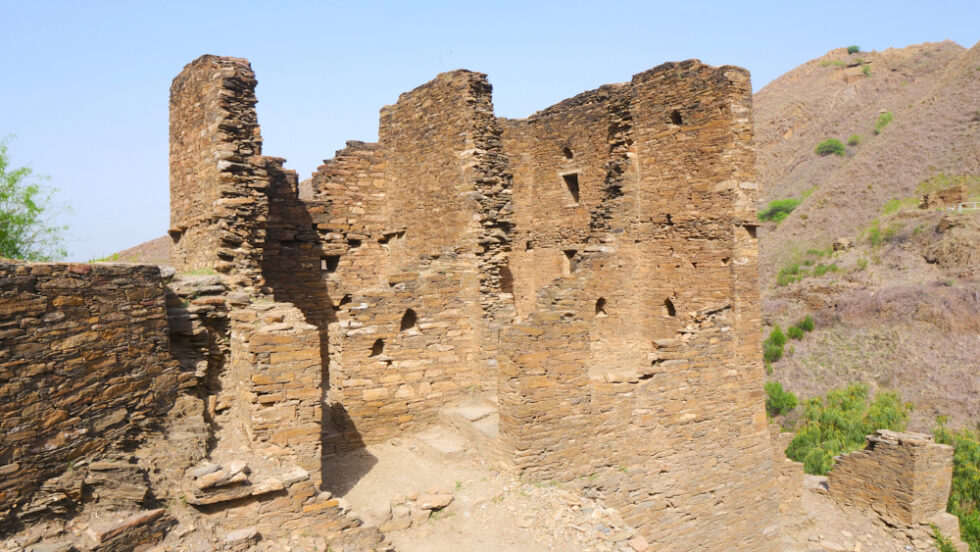
The area is also known for the Paleolithic artifacts unearthed at the nearby Sanghao Caves. Other nearby caves, like the Kashmir Smast Caves, were used by Buddhist monks between the 4th and 9th centuries CE. The earliest use of the number zero on the Indian subcontinent was discovered in the Bakhshali manuscript, discovered near Mardan in 1891.
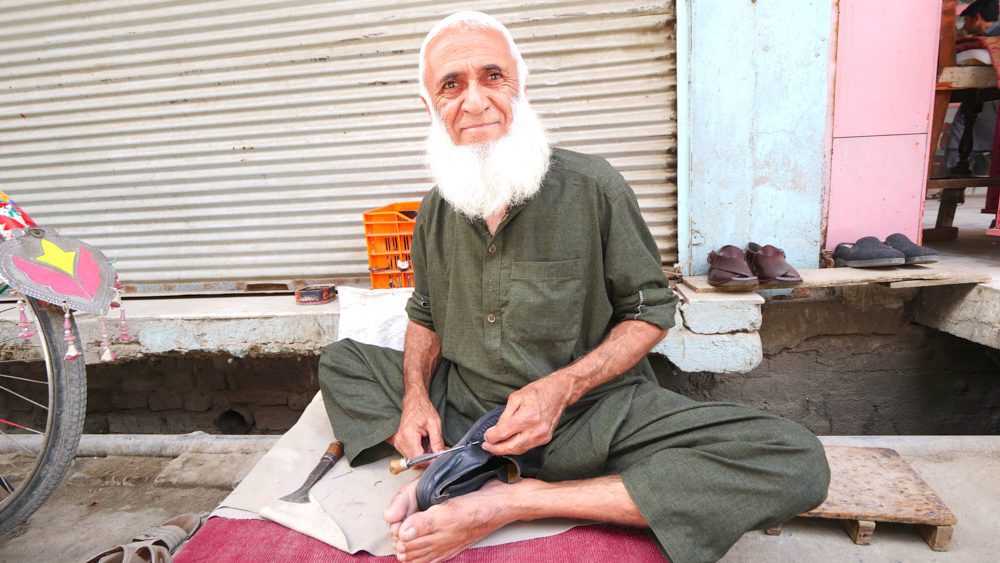
As you can tell, my time in Mardan piqued the excitement of the history buff in me. But I was also blown away by the incredible Pakistani cuisine I enjoyed, as well as the wonderful local experiences I had. My itinerary was balanced and executed perfectly by my guides at Manaky, a Pakistani travel marketplace I highly recommend to anyone who wants to experience the wonders of Pakistan.
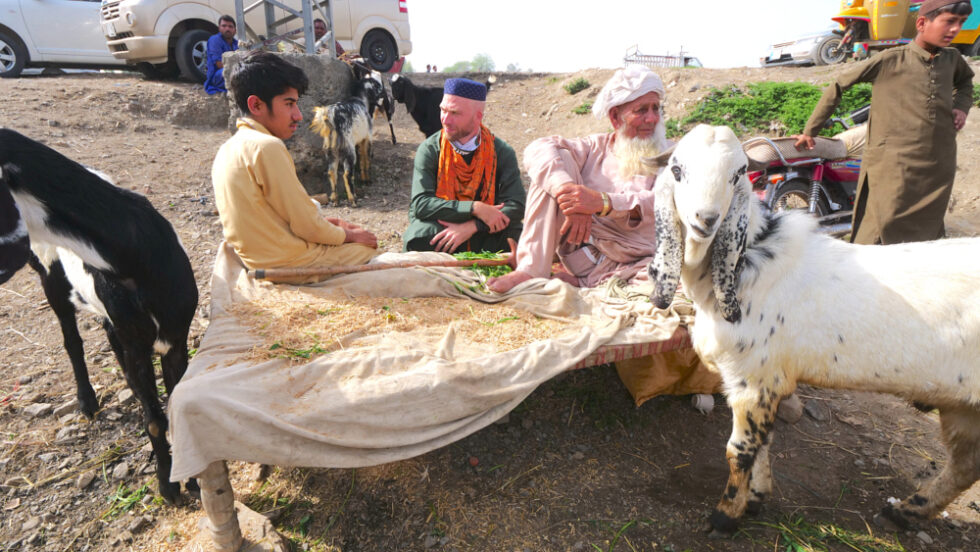
My guides throughout my trip were knowledgeable and friendly and helped make Mardan a highlight of my nearly two weeks in the country. These are the top things to see and do in Mardan, Pakistan.
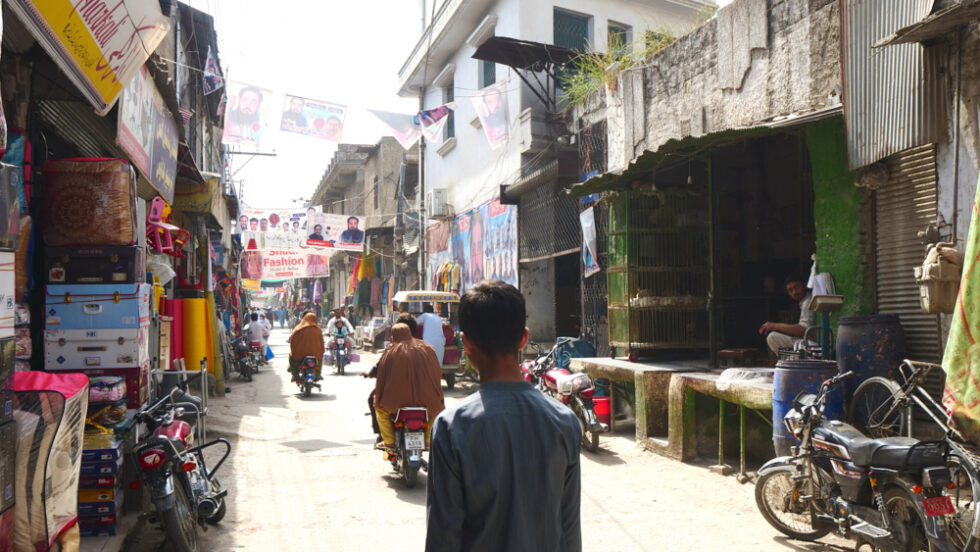
Visiting any city on the Indian subcontinent without strolling the lanes of the local bazaar should be a crime. Seriously. The bazaars are where you get a true feel for local life and where you’ll meet a lot of interesting characters. As is the case in every city I’ve visited in the region, the main market in town, Mardan Bazaar, is the place to be!
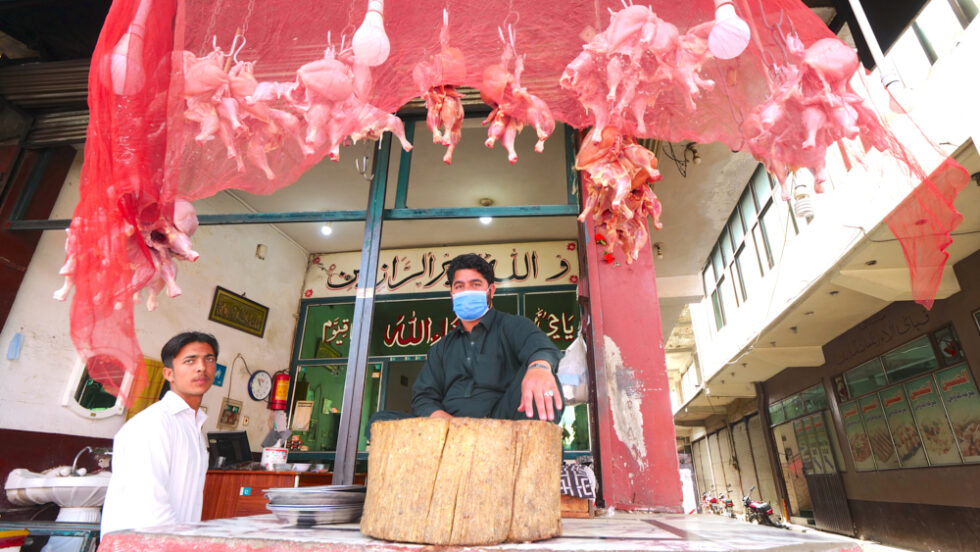
The bazaar can be a lot to take in, as there’s a constant flurry of activity no matter where you look. From men juicing and selling fresh sugarcane juice to butchers hanging freshly de-feathered chickens above their stalls to cooks encouraging you to try their samosas and karahi, Mardan Bazaar is everything I love about this part of the world.
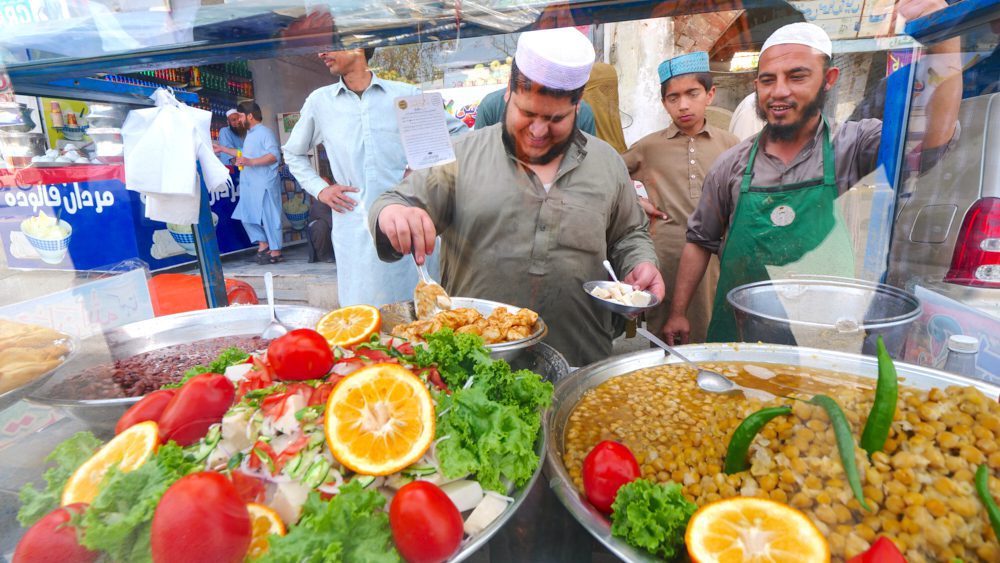
The vendors are remarkably kind and friendly, especially to non-locals—everywhere I went, there were vendors offering me free food and drinks, and others who just wanted to shake my hand and say hello! And best of all, you can buy anything there—butchered meat, electronics, clothing, street food, and more!
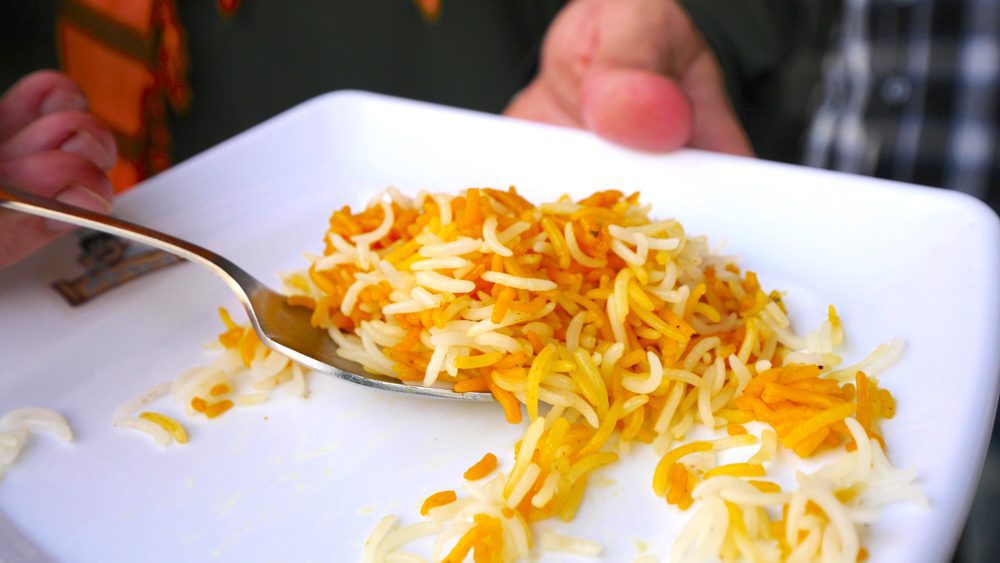
In the bazaar, you must visit Pista House Haleem for their northern-style biryani, which only contains two types of rice and spices. Although it’s hard to beat the meatier biryanis, this one was so flavorful, it knocked my socks off!
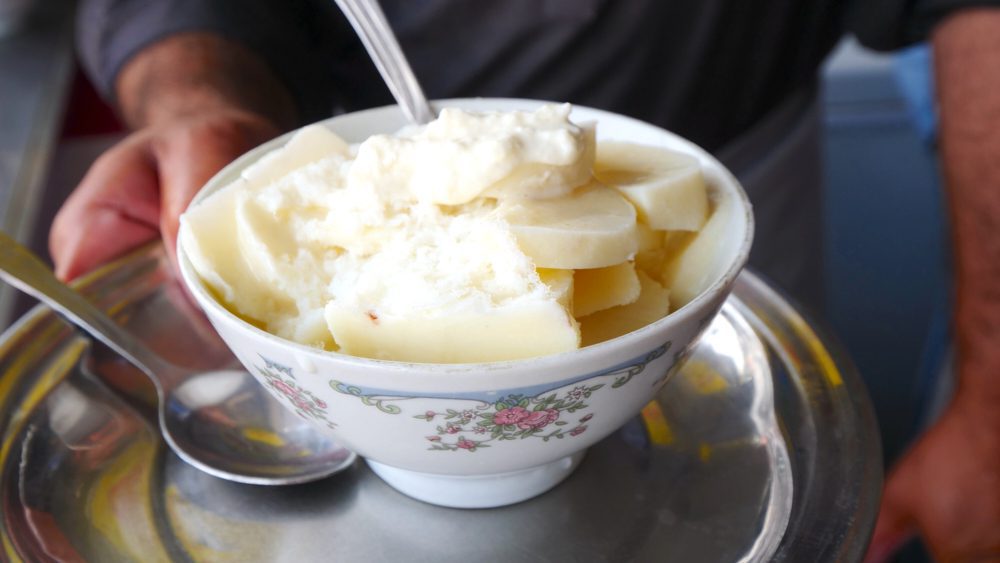
I also suggest heading over to Mardan Faluda for the local take on falooda, a sweet, milky dessert that’s popular in Pakistan and India. The local Mardan-style falooda comes in a bowl instead of a glass, and contains milk, creamy malai, vermicelli noodles, jellies, and a hard and icy ice cream called kulfi.
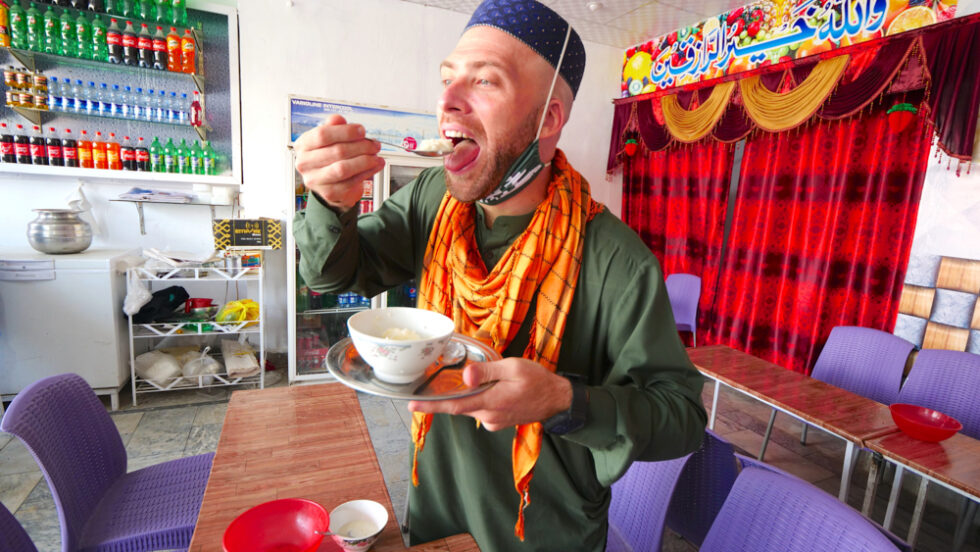
It’s one of the most unique faloodas I’ve ever had, but also one of the tastiest. It was cool and refreshing and the perfect thing to snack on before heading back out into the market. It’s easily one of my top things to do in Mardan, Pakistan!
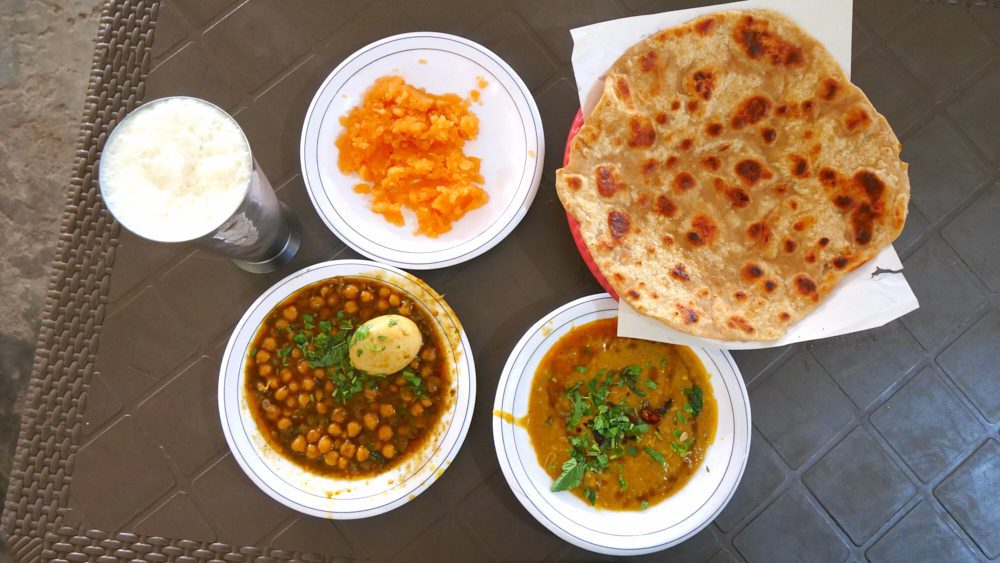
Roughly midway between Mardan and Peshawar, the largest city in the province, is the town of Taru Jabba. Located roughly 30 minutes from both, Taru Jabba is a great spot to stop for a Pakistani street food breakfast on an early-morning road trip to Mardan. It’s my favorite thing to do on the way to Mardan, Pakistan!
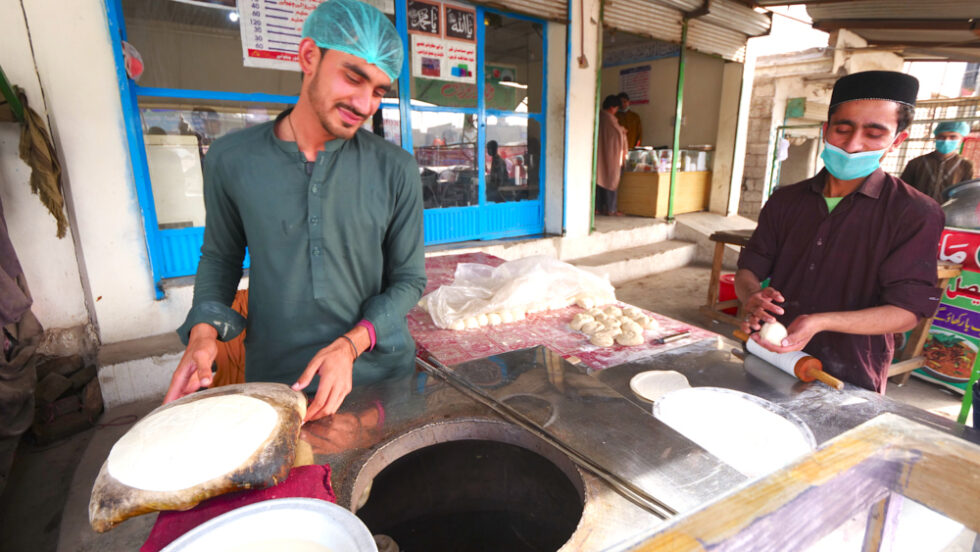
There are a number of street food vendors outside the Faysalabad Hotel offering chana (chickpea curry), a thick and meaty lentil stew called haleem, boiled eggs, parathas (a thick and chewy flatbread), halwa (a sugary semolina dish), and lassi (a creamy yogurt-based drink). I suggest getting some of everything!
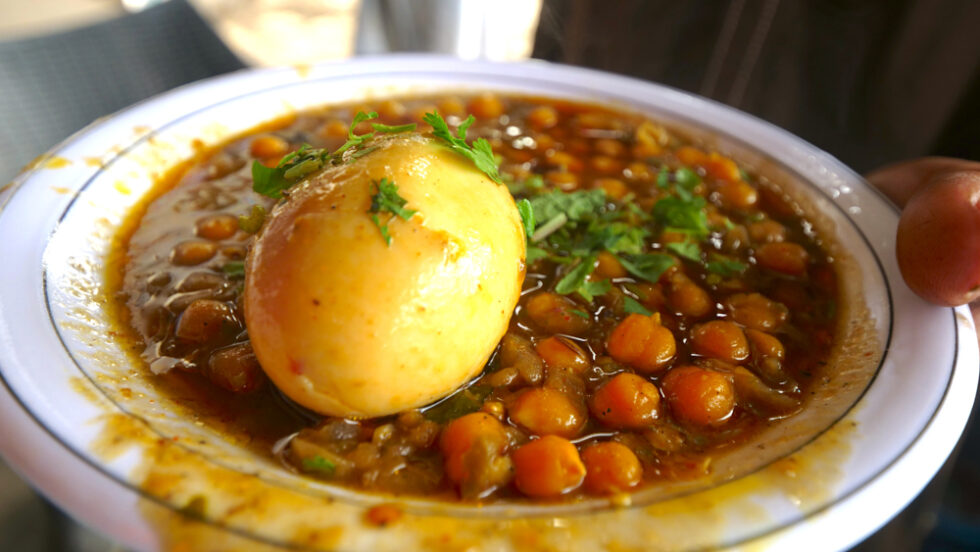
The parathas I tried were exceptional, especially with the oily chana and hard-boiled egg. The combination blew my mind! The earthy chickpeas and sulfur flavor of the egg worked much better together than I thought they would. I suggest eating them with the halwa, which gives you a nice sweet-and-savory flavor that ping-pongs all over your palate!
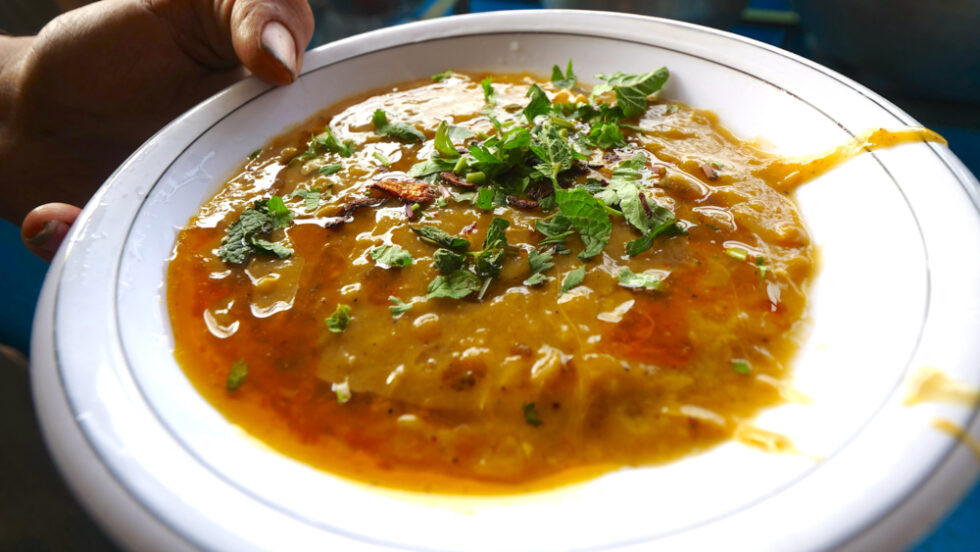
But the highlight for me was the haleem. Like the variety I’d eaten in Karachi, it had a thick and pasty consistency. It came with crisp, fried onions and was topped with fresh mint, which added an herbal flavor. I couldn’t help but devour the whole thing—haleem with parathas is a winning combination!
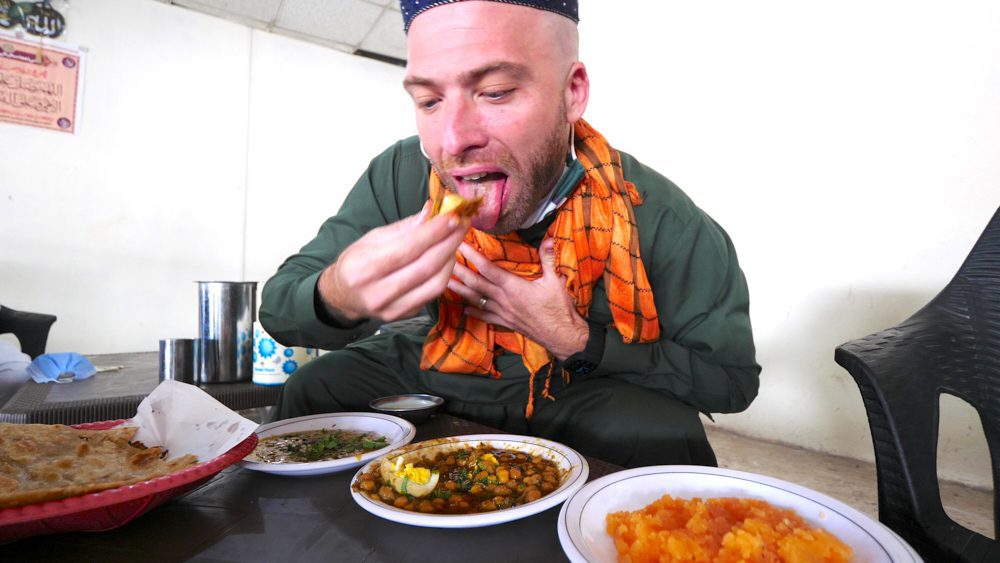
Of course, no Pakistani meal is complete without chai, so I recommend buying some and letting it cool off while you eat. The creamy, cafe-con-leche-like consistency, coupled with the gingery, cardamom-rich flavor, makes chai one of my all-time favorite drinks.
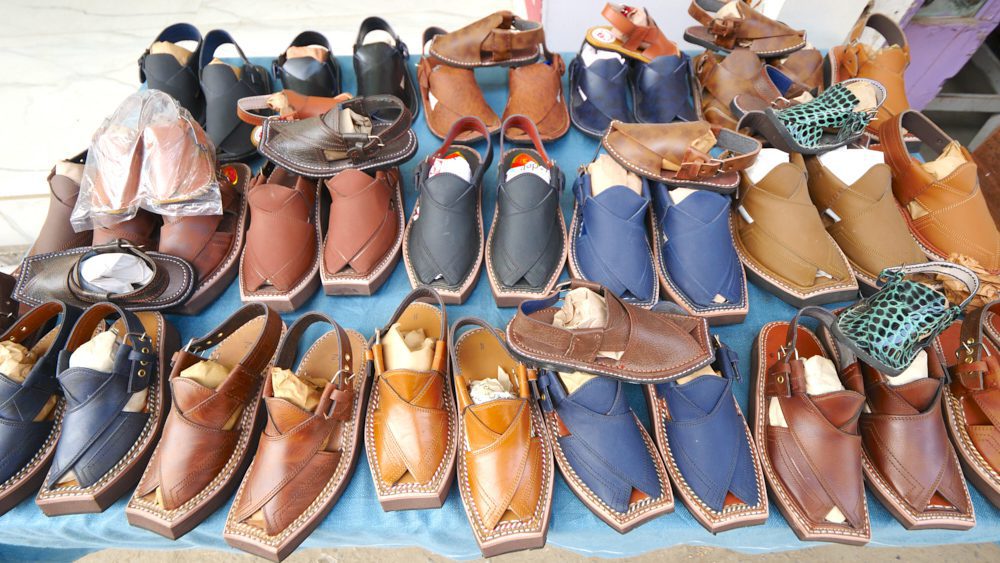
Before you leave Mardan Bazaar, there is another shop you have to visit. It’s so special I had to create a separate entry for it—Imperial Collection. This amazing shop sells Peshawari chappals, which are sleek and traditional leather sandals worn by the local Pashtun men.
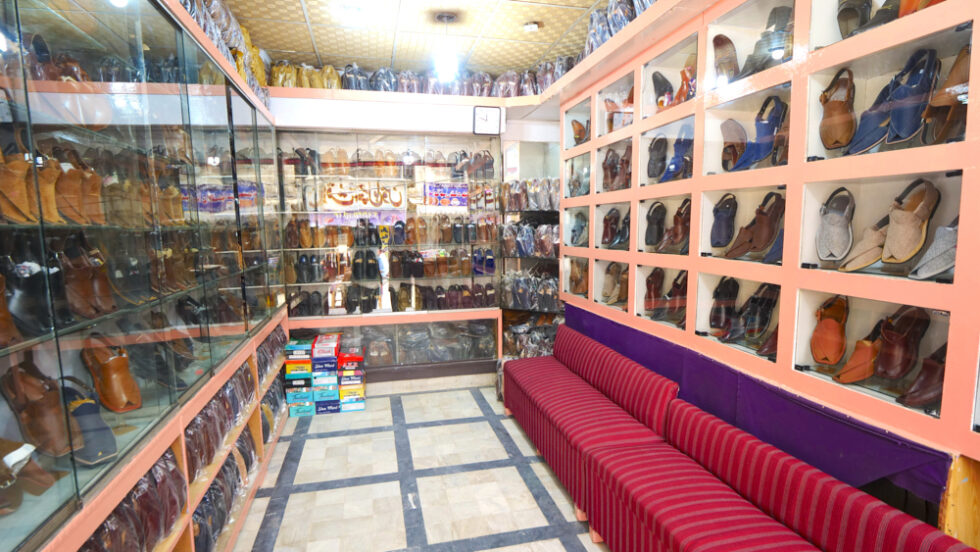
There are a number of shops in the bazaar that sell chappals in a variety of colors and designs. I knew a pair of handmade chappals would be the perfect souvenir to take home, and the amazing employees at Imperial Collection helped me find the right pair for me.
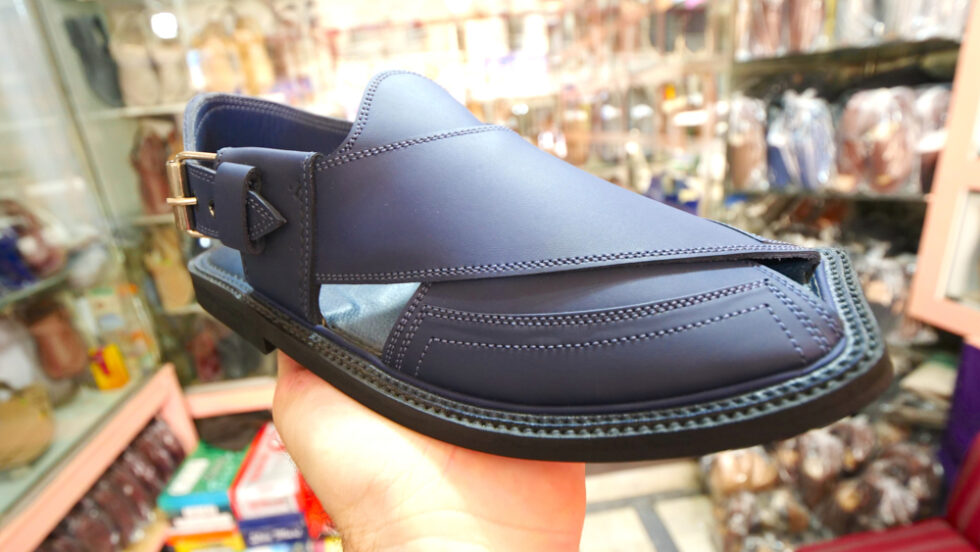
I wound up getting blue chappals that fit me perfectly and were extremely comfortable. They only cost 2,000 rupees, or just under $13 USD, but the shop owner gave me a discount of 200 rupees. Less than $12 for a beautiful pair of chappals is a massive bargain in my eyes, so if you’re a man looking for sandals in Pakistan, this is the place to go!
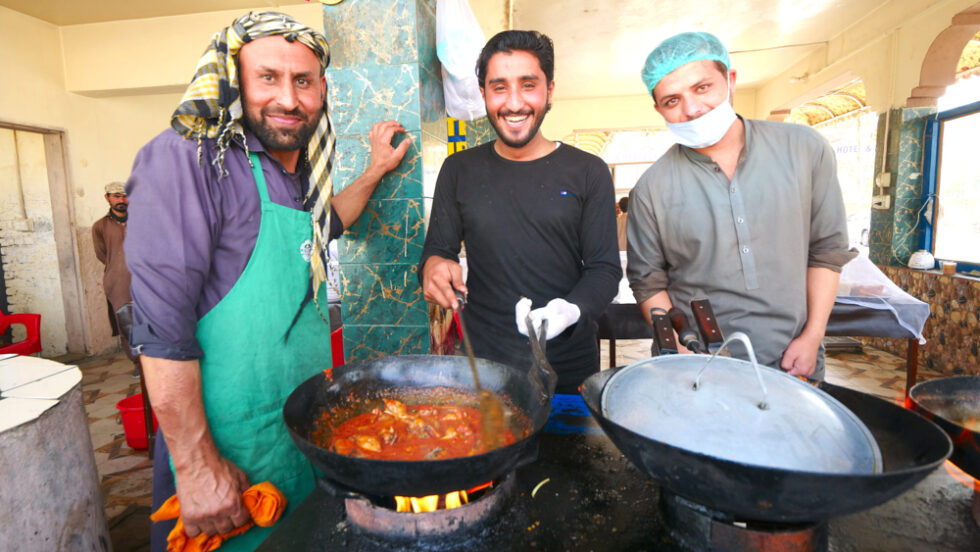
One interesting thing to note about Pakistan is that it is against the law to sell beef and mutton on Wednesdays. I was unaware of this until my time in Mardan, when my guide Rashid informed me that the kebab shop we wanted to visit was closed for the day for that very reason. So instead, we headed over to PK Hotel & Restaurant for lunch.
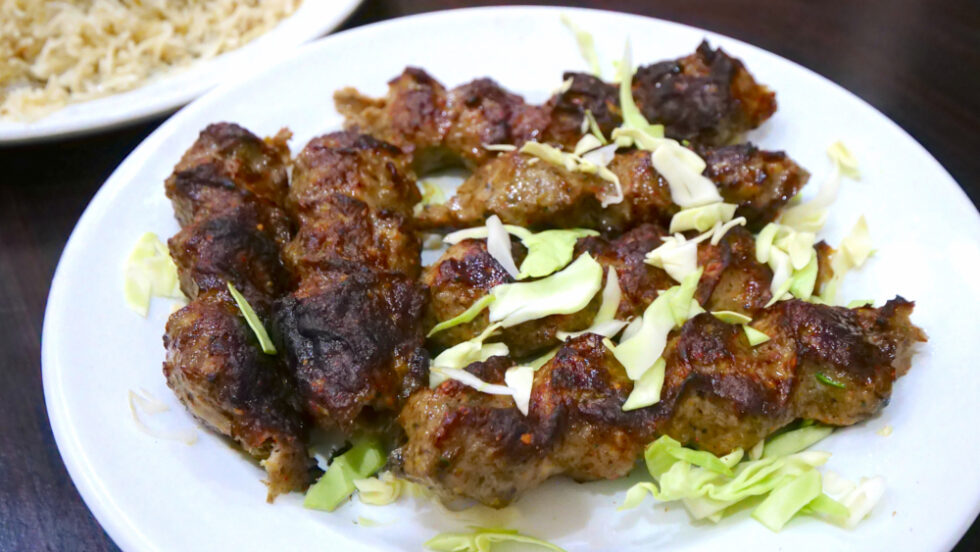
There, we enjoyed an amazing Pakistani feast. It included chicken seekh kebabs, kabli pulao, chicken karahi, and naan with raita on the side. The kabli pulao, which I had first tried in Peshawar, was fantastic. It was savory, earthy, and sweet by itself. Adding the creamy, yogurt-based raita added a palatable creaminess I couldn’t get enough of!
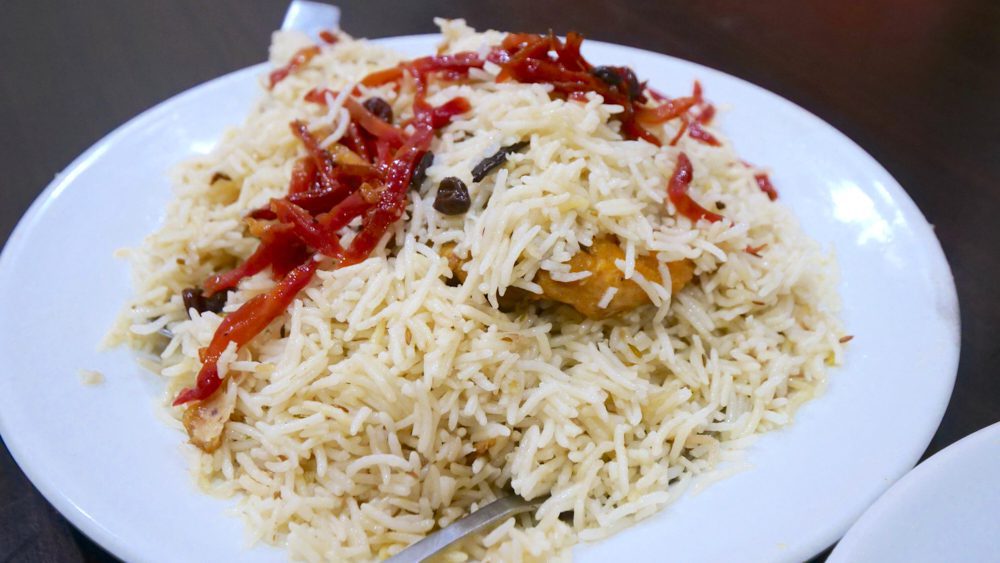
I also really enjoyed the chicken seekh kebabs. They were made from juicy minced chicken and were fall-apart tender. But I can’t say enough great things about the chicken karahi.
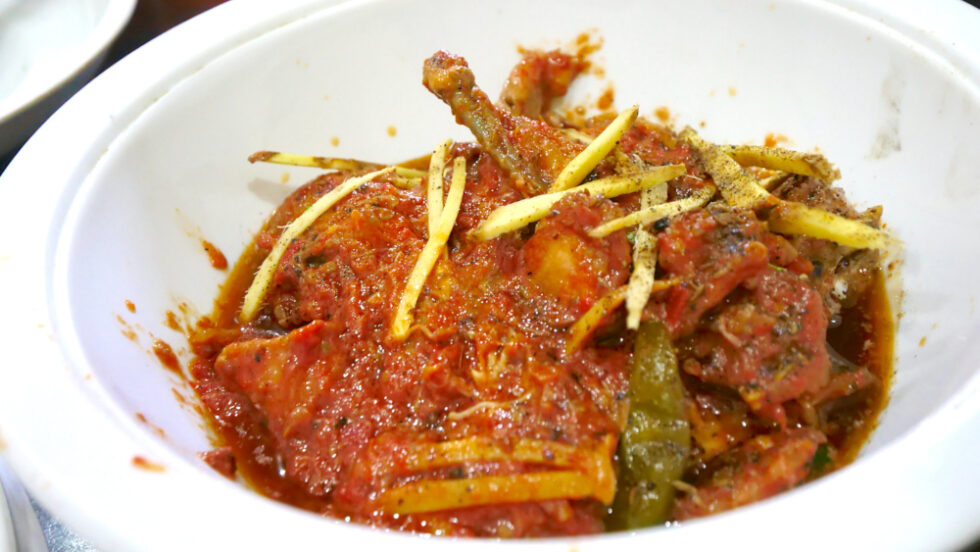
This creamy, tomato-based chicken curry is one of my favorite food discoveries I made in Pakistan. It’s full of spices and packed with flavor, and the velvety tomato gravy with the tender chicken is otherworldly! Eating this dish alone is among the best things to do in Mardan, Pakistan!
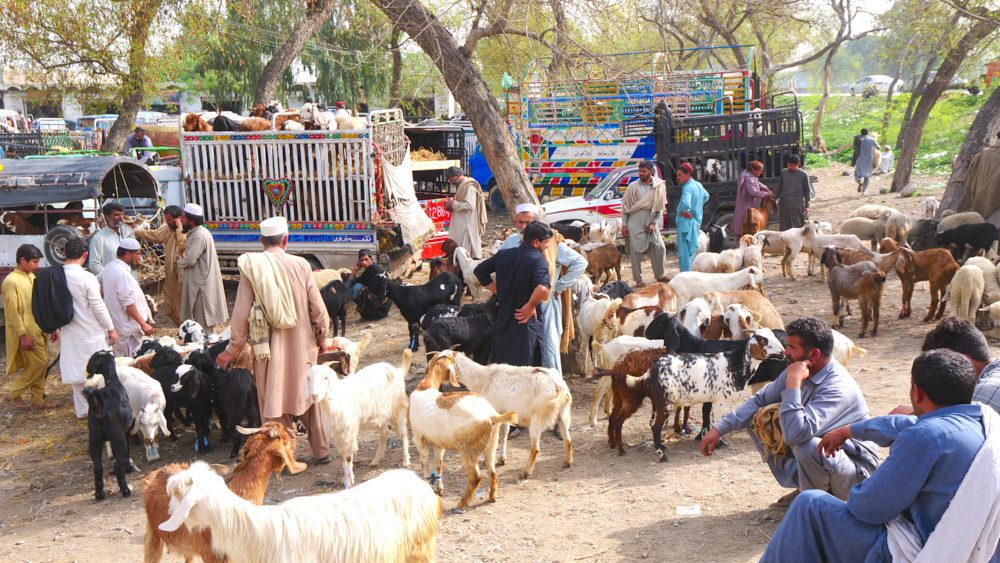
Between Taru Jabba and Mardan is one of the more unique places to visit in the Mardan area: a local livestock market. I’ve always been a fan of visiting these markets when I travel, whether it’s in Ghana or Kosovo or China. Like bazaars, they’re great places that give you real insight into what local life is like.
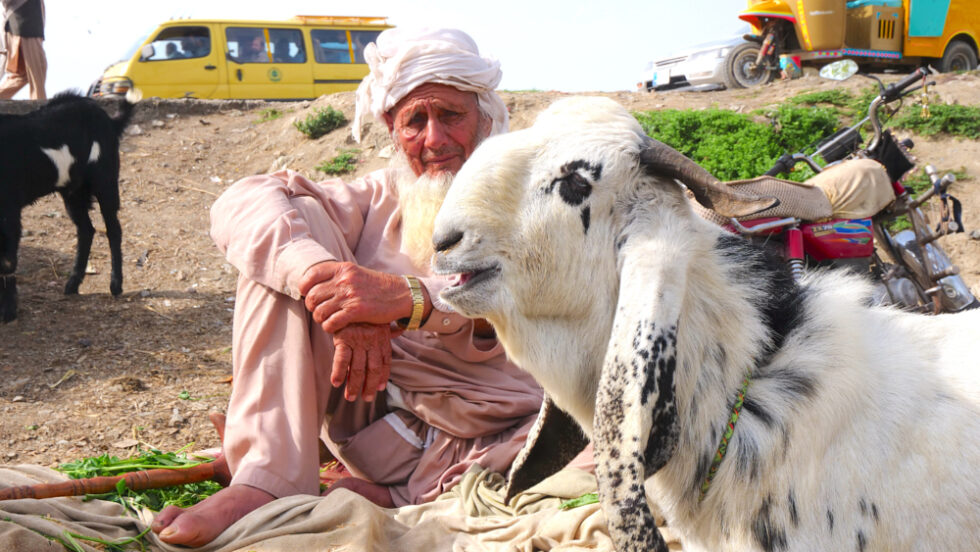
As Rashid and I pulled up to the outdoor market, we saw a large number of merchants. Along with them were huge trucks packed with goats, lamb, and sheep. The animals are then let out and roam the area while the merchants keep a watchful eye on them.
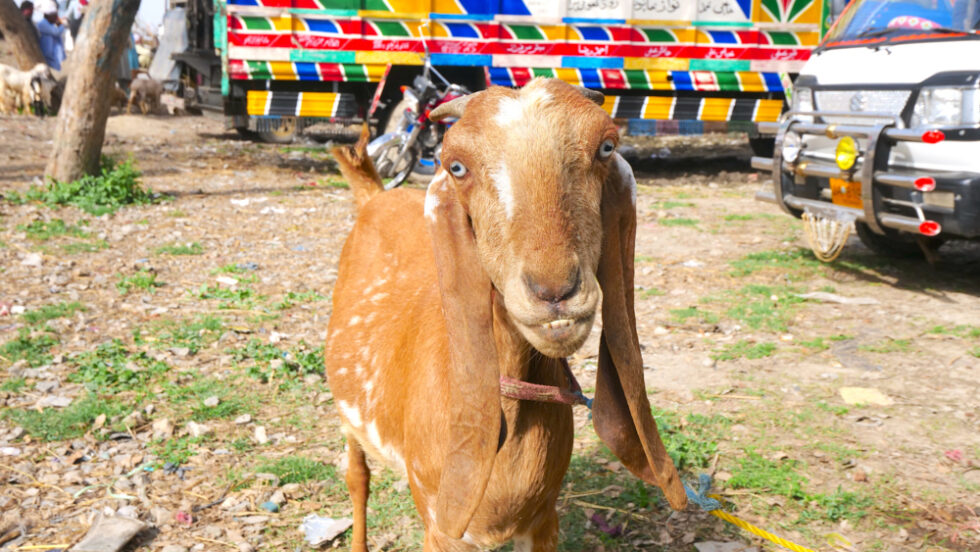
During my quick visit, I could see locals browsing as they walked between the animals and bargaining with the merchants. It’s a reminder of where our meat comes from, and a raw and real side of Pakistan that I quite enjoy. Even if you’re not planning on buying a goat, it’s one of the best things to do in Mardan, Pakistan!
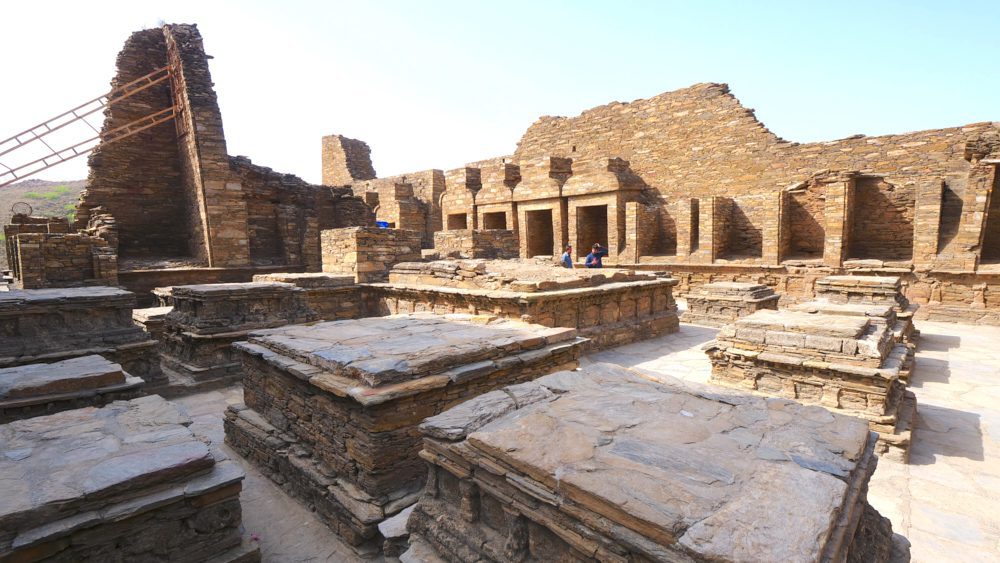
Arguably the most famous site in the Mardan area is Takht-i-Bahi. This ancient monastic complex dates back to the early 2nd century BCE. Despite it being over 3,000 years old, it is remarkably well-preserved. Because of its historical and cultural significance, it was named a UNESCO World Heritage Site back in 1980.
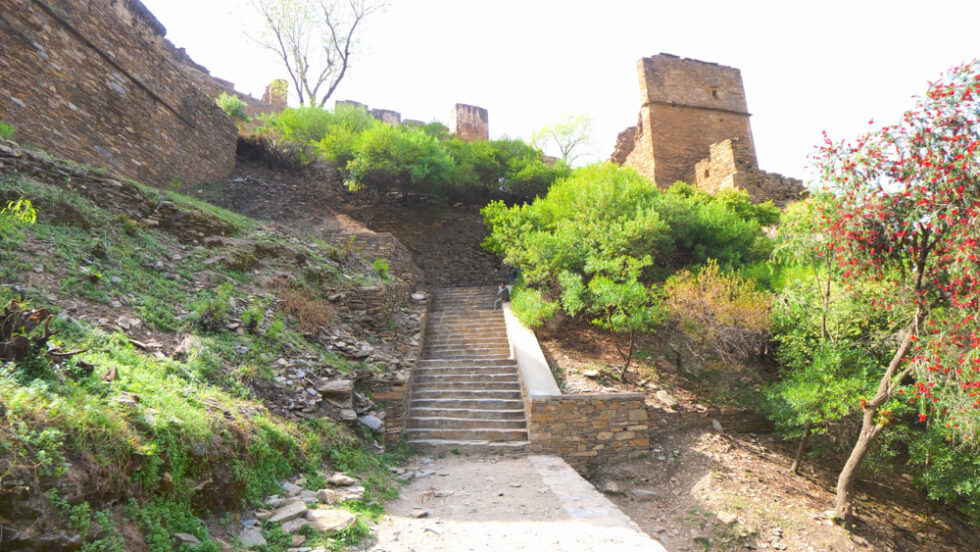
The cost of admission for foreigners is only 500 rupees, or about $3.22 USD. It’ll cost you an additional 300 rupees/$1.93 USD if you want to take photos and video. You must also have a visa and passport in order to enter. It’s well worth the price, though, as the site truly is impressive.
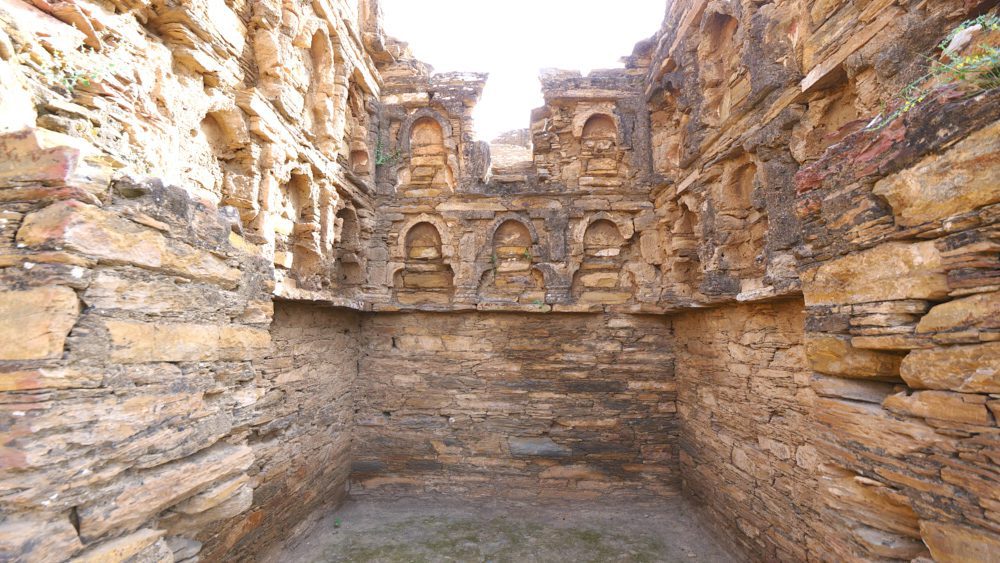
Once you hike up the wide stone steps, you’ll reach the excavated part of the monastery. Only 25% of the complex has been unearthed, but the site is already massive.
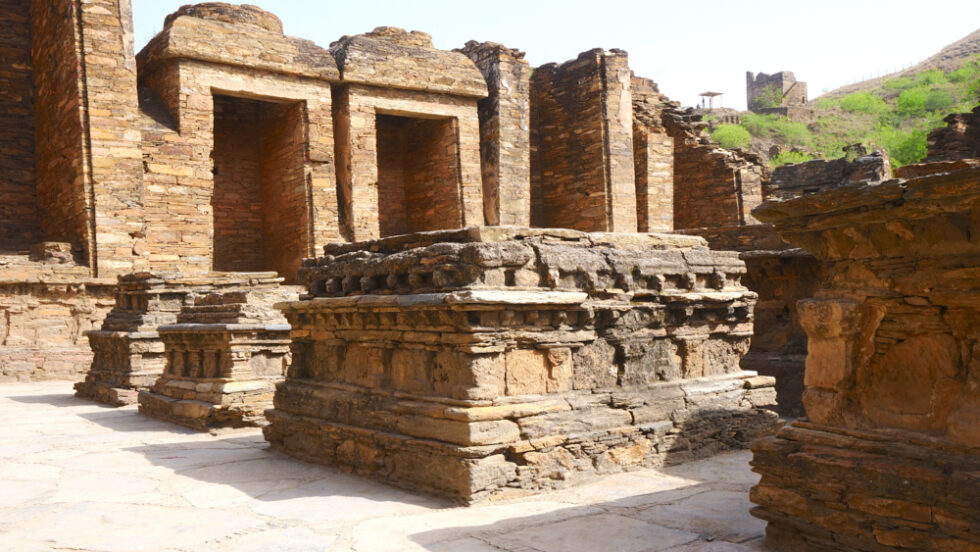
Atop the hill, you’ll find a number of spectacular ruins, including stupas, crumbled houses, meditation cells, monk and servant quarters, classrooms, walls, and much more. The complex really is more like a small city. Viewing the entire excavated complex from the very top of the hill had me in awe!
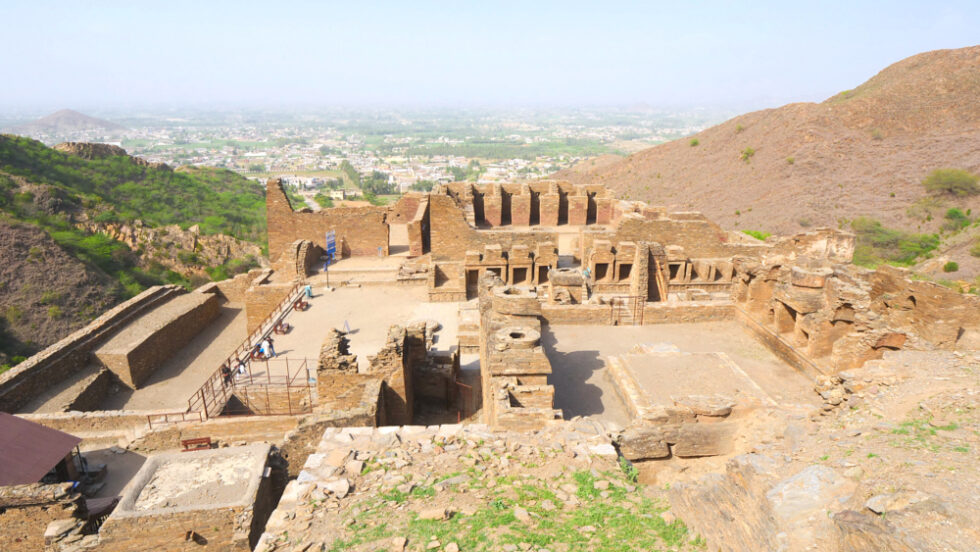
It sounds cliche, but walking among the ruins really is like taking a trip back in time. It’s beautiful and expansive, and learning the purposes of the different rooms is absolutely fascinating. I’ve visited hundreds of historical sites in my travels, but seeing their grandeur never gets old. It’s why visiting Takht-i-Bahi is among my top things to do in Mardan, Pakistan!
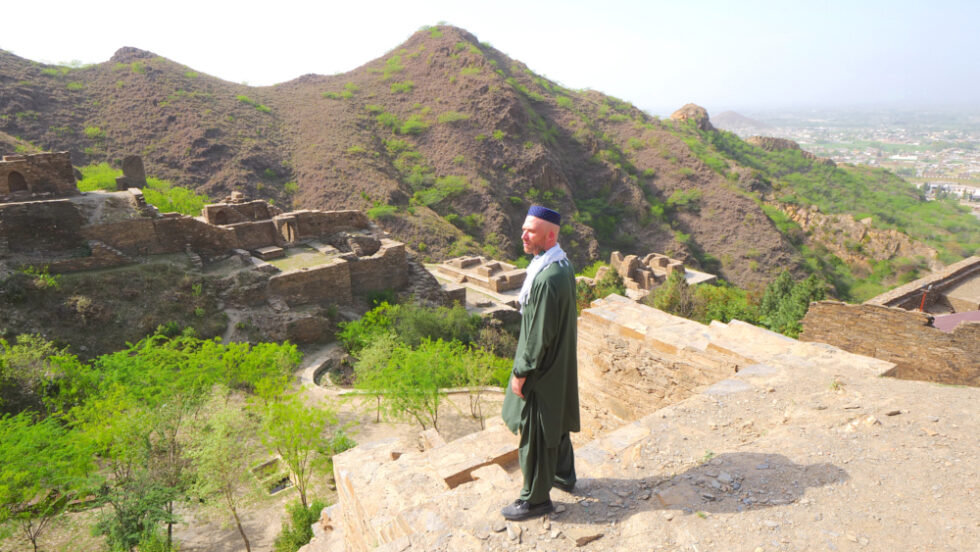
The city of Mardan probably isn’t on many travelers’ itineraries, but it really should be. It offers just the right balance of history, food, and attractions, which makes every adventure feel new and different. From its bazaar to its monastery to its amazing people, places like Mardan remind me why I love traveling. The city was a true joy to explore, even if it was only for a day. Book a trip today to experience the best things to do in Mardan, Pakistan. Trust me, you won’t regret it!
NOTE: If you need to check the visa requirements of a particular country, click here. To apply for a visa, find up-to-date visa information for different countries, and calculate the cost of a particular visa, click here!
Counter
101 Countries • 1432 Cities